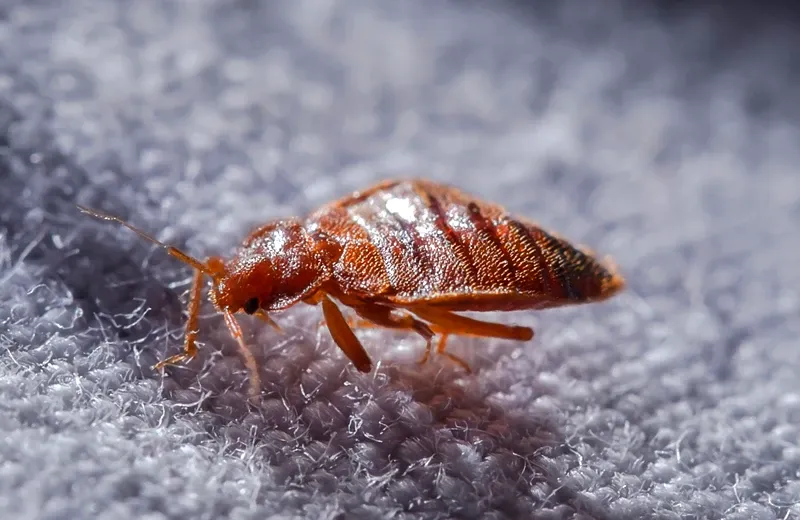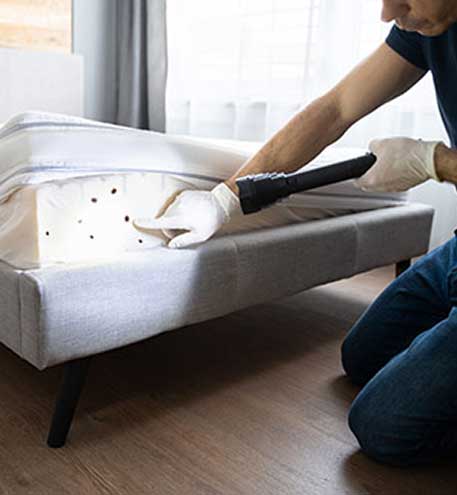Finest Kings Bug Control Cincinnati: Top-Rated Pest Control Experts
Finest Kings Bug Control Cincinnati: Top-Rated Pest Control Experts
Blog Article
Sorts Of Insect Control: Which Method Is Right for Your Problem?
When confronted with a parasite invasion, the choice of a suitable approach for parasite control is critical in effectively handling the scenario. From chemical treatments to biological remedies, there exists an array of strategies that can be utilized to deal with different types of bugs. Each technique comes with its own set of advantages and considerations, making the decision-making process a nuanced one. Comprehending the subtleties of each strategy and assessing their compatibility with the specific parasite infestation available is vital for attaining lasting success in parasite monitoring. By exploring the numerous sorts of pest control methods offered, individuals can make enlightened decisions tailored to their distinct situations, making certain a more sustainable and effective end result in pest eradication.
Chemical Insect Control
Chemical insect control involves making use of synthetic or naturally acquired chemicals to take care of and eliminate pest populaces effectively. This technique is typically made use of in farming, forestry, and property setups to deal with a large range of bugs, consisting of weeds, insects, and rodents. The usage of chemical pesticides can give fast and targeted remedies to pest infestations, making it a popular option for many people and companies.
Among the vital advantages of chemical insect control is its ability to quickly remove pests, lowering the danger of damage to crops, home, and human wellness. By using certain chemicals that target certain pests, this method can successfully manage invasions while decreasing harm to valuable organisms and the setting when used properly.
Nonetheless, using chemical insect control additionally increases worries about possible damaging effects on non-target varieties, water resources, and human health and wellness. It is critical to comply with safety standards, use chemicals sensibly, and consider alternate pest control techniques to reduce these dangers and make certain sustainable bug administration practices.
Organic Parasite Control
Organic parasite control, likewise referred to as biocontrol, uses living microorganisms to manage and reduce parasite populaces normally. This approach utilizes the power of nature to regulate pests without the demand for synthetic chemicals. Biocontrol can include the introduction of all-natural opponents of the bug varieties, such as virus, killers, or parasites, to reduce bug populations. By utilizing the parasite's all-natural killers or virus, biological pest control supplies a lasting and eco pleasant service to pest monitoring.

Mechanical Bug Control
Using physical and hands-on methods to manage insect populations, mechanical insect control offers an alternative method that does not rely on using living microorganisms or synthetic chemicals. This technique entails using obstacles, traps, or various other devices to literally discourage or eliminate parasites. By obstructing pest entry factors or setting up traps to catch them, mechanical parasite control can successfully minimize problems without introducing chemicals into the atmosphere.
One usual instance of mechanical parasite control is the usage of mesh displays on windows and doors to avoid bugs from entering buildings. This basic yet reliable technique serves as a physical barrier, keeping bugs out while permitting for proper air flow. Additionally, devices like mousetraps, fly swatters, and ultrasonic repellents drop under the mechanical pest control group.
While mechanical parasite control techniques can be labor-intensive and call for regular monitoring and upkeep, they offer a sustainable and new termite treatments eco-friendly remedy for taking care of pest invasions. By integrating different mechanical strategies, home owners can create a detailed insect control strategy that lessens dependence on chemical pesticides.
Physical Insect Control

Some typical physical bug control approaches consist of the usage of obstacles such as internet or displays to avoid parasite access, traps to catch and get rid of bugs, and hand-picking to physically remove insects from plants or structures. Furthermore, methods like warmth treatments can be used to control insects like bed insects by elevating the temperature to degrees that are deadly to the bugs.
Physical parasite control is particularly helpful in incorporated pest management (IPM) techniques, where multiple parasite control approaches are incorporated for efficient parasite management while minimizing using chemicals. By making use of physical insect control strategies, people can successfully deal with parasite infestations with very little ecological impact.
Integrated Parasite Management
When executing physical parasite control techniques as component of bug monitoring techniques, Integrated Pest Monitoring (IPM) becomes a detailed technique that leverages different techniques to properly regulate pest populations. IPM concentrates on long-term prevention of parasites with a combination of organic, social, physical, and chemical devices customized to specific insect concerns. By incorporating numerous control techniques, IPM aims to decrease the dangers connected with insects while also minimizing reliance on chemical remedies.
One secret element of IPM is the emphasis on tracking and examining pest populations to identify one of the most ideal control techniques. This positive method Visit Your URL permits very early intervention and targeted approaches, resulting in more effective insect administration. Furthermore, IPM advertises eco-friendly techniques by prioritizing non-chemical control approaches and just using chemicals as a last option.
Conclusion

By utilizing the insect's all-natural predators or pathogens, organic parasite control offers a lasting and environmentally pleasant option to pest management. - Kings Bed bug exterminator Cincinnati
Making use of physical and hand-operated techniques to manage pest populations, mechanical bug control provides an alternative technique that does not depend on the use of living organisms or synthetic chemicals.An effective method to taking care of bug populations without relying on chemical or biological techniques involves the usage of physical bug control techniques.When applying physical parasite control techniques as component of pest administration techniques, Integrated Parasite Management (IPM) emerges as a comprehensive technique that leverages different techniques to efficiently control pest populaces. Chemical pest control entails the use of chemicals, biological pest control utilizes all-natural predators, mechanical pest control includes physical barriers, physical pest control consists of capturing or getting rid of pests, and incorporated bug administration combines numerous approaches for an alternative strategy to pest control.
Report this page